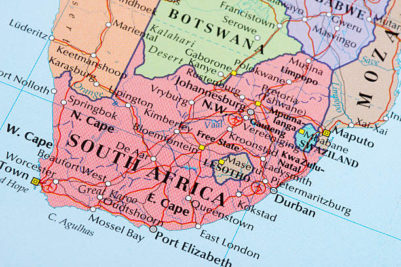South Africa has a severe disparity issue regarding broadband, with 7.5 million low-income residents paying 80 times more than the middle- and upper-income classes, reported Fast Company. In response, the South African government made a radical promise last August: to provide 10 free gigabytes of high-speed broadband to every household in its 60 million-plus population. According to South Africa’s communications minister Khumbudzo Ntshavheni, “Broadband and data will now become a basic utility that every household must receive, just like water and security.”
The pledge is meant to help the country close its domestic wealth gulf. According to Fast Company, even after service providers lowered prices (by 50 percent), the cheapest unlimited data in the country costs around $30 per month. This figure equals nearly a month’s salary for millions of people who live at or below the poverty line.
South Africa recently earned nearly $1 billion from a spectrum auction, with proceeds benefiting the broadband program. The government also owns a big broadband company, Telkom, giving it the power to invest in better fiber connections and decrease data prices, reported Fast Company.
In addition, the country is hopeful that Google’s planned Equiano subsea internet cable from Portugal to South Africa will help boost speeds. However, naysayers are still cautiously optimistic about the government delivering universal broadband to households due to an archaic central planning system and government corruption.
Free internet is currently available at libraries, fire stations, schools, clinics, etc., but speeds are slow. The free service is usually delivered via an outdated asymmetric digital subscriber line (ADSL) or copper wire telephone lines. Fast Company reported that most free setups couldn’t support the bandwidth needed to serve millions of residents.
:It’s not just old infrastructure and slow speeds that prevent residents from accessing the internet,” said Pela Xolile of the Tembisa Better Streets Initiative. “Communities also have to contend with municipalities failing to pay bills or theft of equipment.”





Reader Interactions